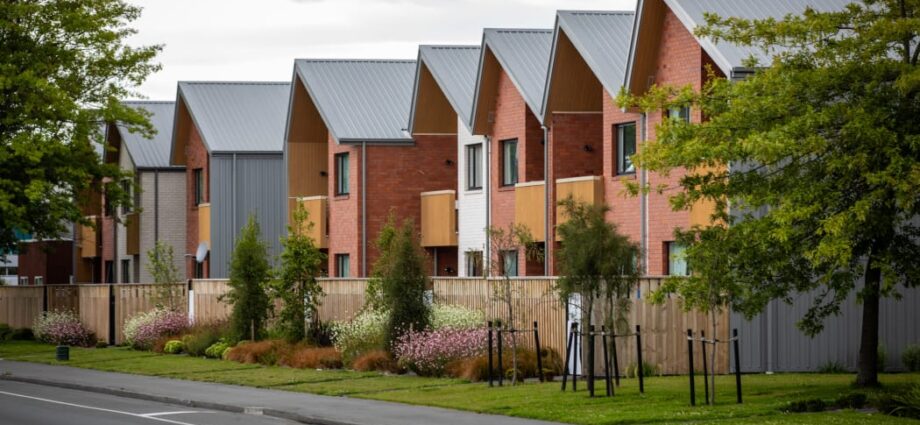PHOTO: The research also indicated that people who bought now were less likely to enjoy the capital gains seen in property values over the past decade. Photo: RNZ / Nate McKinnon
Home affordability for first-home buyers is the worst it has been in 65 years, according to an economics consultancy.
Infometrics compared and analysed the total payments made by homeowners over the lifetime of their mortgage against the value of the property when the loan was repaid, to calculate the net financial gain.
Its research, which goes back to the 1940s, suggests 2022 was the worst year for first-home buyers since 1957.
“Given the increase in house prices during 2020 and 2021 and the lift in mortgage rates since the middle of last year, average first-home buyers currently face initial mortgage payments equal to 49 percent of their income,” Infometrics chief forecaster Gareth Kiernan said.
This figure is the highest on record, surpassing the previous records of 1987 and 2007, he said.
“But the killer for current buyers is that they face committing an average of 33 percent of their income throughout the next 25 years to repay their loan.”
This compared with the 21 percent that prevailed throughout the 2000s and 2010s.
“Young people are effectively signing themselves up for a lifetime of debt if they want to get into the housing market, with much less money left over for discretionary spending than previous generations enjoyed.”
Kiernan said its research brought some perspective to the debate between baby boomers and millennials about who had it harder getting into their first home.
“Our analysis shows that even with mortgage rates below 5 percent, the average home’s million-dollar price means that today’s first-home buyers face much less favourable financial outcomes than a buyer in 1987 did with interest rates of 20 percent.”
The research also indicated that people who bought now were less likely to enjoy the capital gains seen in property values over the past decade, which would otherwise help to offset the high ongoing mortgage costs they were signing up for.
Some of the best years to have been a first-time buyer were 1949 and 1996, as interest rates stayed relatively low throughout the life of the mortgage and there was substantial price rises as well.
The worst years it found were 1955 and 1975 because the following 25 years included periods of a weaker house prices.
“Realistic house price projections for the next 25 years mean that buying in 2022 is almost as bad, financially, as 1955.”
Fears of social division
Kiernan said the most realistic path to homeownership for many young people was with assistance from the “bank of mum and dad”.
“This outcome is likely to reinforce the divide between families that are homeowners and families that are not, and it strikes at the heart of New Zealand’s egalitarian foundations.
“There is a social responsibility for greater political action to ensure that homeownership does not continue to slip out of reach for more and more Kiwis,” he said.
Infometrics principal economist Brad Olsen told First Up that decades ago housing used to be much more affordable but the changes were like “a slow train wreck” that could result in a lot of risk for the country’s future.
“Unless we get serious about combating it we’ve got some huge social divisions that are going to grow in New Zealand because there will be an increasing number of young Kiwis who will just not have the opportunity to get into the housing market or if they do, they will be lumbered with a lot more debt effectively that they have to repay over time than prior generations.
“So there’s a huge difficulty here…”
The outlook suggested the current pattern would continue so decision makers needed to get serious about reforms instead of providing platitudes, he said.
READ MORE VIA RNZ




















